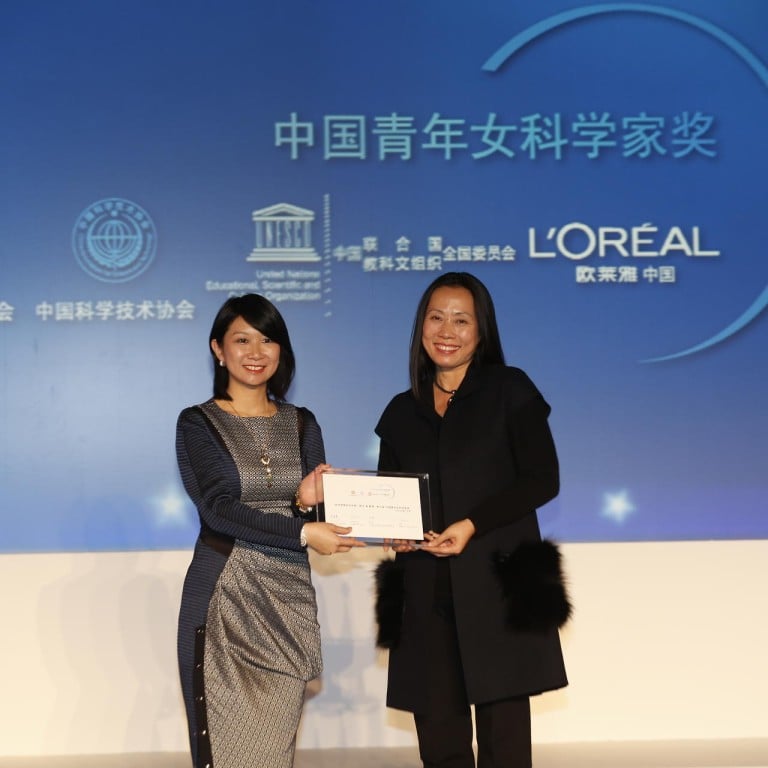Professor Rossa Chiu says raising her children is her biggest research project

Cancer researcher says bringing up her twin daughters is her greatest research project
Unlike most working mothers, medical researcher and professor Rossa Chiu Wai-kwan finds little difficulty in balancing her busy work schedule and spending time with her family. "Raising my children is the biggest research project of my life," she says.
Mother to her seven-year-old twin daughters, Chiu has a regular schedule mapped out. She finishes work at 7pm, dines with her daughters, checks their homework and sends them to bed.
"Whenever I am off my mum-duty I start thinking about work," she says. "But whenever I am with my family, I don't spend one second thinking about work. I get completely off the hook of my scientific research until my daughters go to school. The two fit with each other very well."

Chiu devotes a huge amount of time to her research, the best known one being the non-invasive prenatal diagnosis of fetal Down syndrome by massively parallel sequencing. Her team has gone further and headed towards non-invasive diagnosis of cancer, which is even more time consuming.
"Cancer is a very complicated genetic disease," she says. "A tumour has a lot of dead cells in it, which throws DNA into a person's plasma. Our research aims at determining the possibility of one having cancer by looking into plasmas. If it contains a lot of mutated DNA, it is very likely to be caused by cancer."
Over the past year, Chiu and her team have devoted themselves to developing a protocol that is much more affordable than the original one. "The cost of the original model is HK$80,000 per case and in a commercial operation, one test can cost double that. Also, it can only handle four cases per week," she says. "The cost of the new protocol can be lowered by 10 times and the efficiency can go up by 40 times and carry out 160 tests per week."

"Positron Emission Tomography, or PET Scan, is a way to check for cancer at the moment. But it is highly radioactive and can not be performed every year. Doctors wouldn't advise doing so unless they find it really necessary," she says. "It is our hope to develop a blood test that can also check for different types of cancer. There's no 'one-size-fits-all' cancer test at the moment, but we are working towards that."
Chiu says if this research succeeds, it might affect the diagnosis and treatment of cancer.